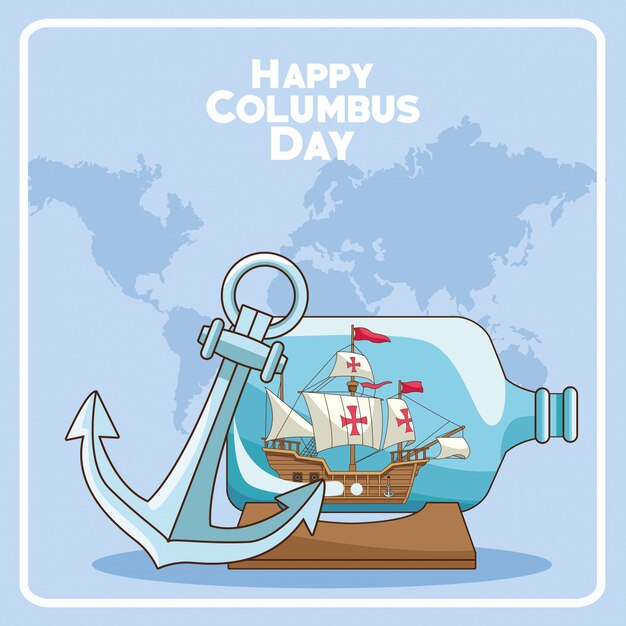Fun Facts About Christopher Columbus

Christopher Columbus is known for discovering America in 1492.
Columbus was actually looking for a direct route to Asia when he stumbled upon the Americas.
Columbus made a total of four voyages to the New World.
The first person to spot land on Columbus’ expedition was a sailor named Rodrigo de Triana.
Columbus initially believed he had reached Asia, referring to the indigenous people as Indians.
Columbus’ voyages opened up a new era of exploration and paved the way for European colonization of the Americas.
Columbus returned to Spain with a variety of new foods from the Americas, including tomatoes, potatoes, and corn.
Columbus’ voyages led to the Columbian Exchange, a widespread exchange of plants, animals, and diseases between the Old and New Worlds.
Columbus’ discovery of the Americas had a significant impact on world history and changed the course of human civilization.
Columbus’ voyages inspired other explorers, such as Amerigo Vespucci and Ferdinand Magellan.
Despite his historical significance, Columbus was a controversial figure due to his treatment of indigenous peoples.
Columbus is often credited with bringing European civilization to the New World, but it came at the cost of native cultures and lives.
Columbus’ voyages marked the beginning of the age of exploration and the end of the Middle Ages.
Columbus’ idea to sail west to reach Asia was initially met with skepticism, but he eventually gained support from Spanish monarchs.
Fun Facts About Christopher Columbus part 2
Columbus’ journey lasted over two months, and his ships faced many hardships along the way.
Columbus named the first island he discovered in the Bahamas San Salvador, which means Holy Savior in English.
Contrary to popular belief, Columbus was not the first European to reach the Americas. Norse explorer Leif Erikson is believed to have arrived nearly 500 years earlier.
Columbus kept detailed journals and made maps during his voyages, providing valuable historical records.
Columbus was born in Italy but sailed under the Spanish flag for his expeditions.
Columbus’ last voyage in 1502 took him to Central America, where he encountered Mayan ruins.
Columbus is often portrayed as a heroic figure in American popular culture, but his actions and legacy are subject to debate.
Columbus’ crew aboard the Santa Maria consisted of about 40 men.
Columbus faced significant opposition and challenges in securing funding for his expeditions.
Columbus’ voyages sparked a new era of globalization, connecting the Eastern and Western hemispheres.
Columbus’ first name, Christopher, means Christ-bearer in Greek.
Columbus’ encounter with the Taino people of the Caribbean had a profound impact on both European and indigenous cultures.
Columbus’ voyages are celebrated in countries such as Spain, Italy, and the United States with annual holidays and commemorations.
Columbus’ ultimate goal was to find a western sea route to Asia, which would bypass the dangerous and costly land routes of the time.
Columbus’ voyages inspired a wave of exploration and colonization by European powers, resulting in the establishment of vast empires.
Columbus’ flagship, the Santa Maria, famously ran aground and had to be abandoned during his first voyage.
Columbus was posthumously dubbed Admiral of the Ocean Sea by the Spanish crown.
Columbus’ travels brought him to various Caribbean islands, including Hispaniola (modern-day Haiti and the Dominican Republic) and Jamaica.
Columbus’ writings and descriptions of the New World stirred the imagination of Europeans and sparked a wave of interest in exploration.
Columbus’ discoveries challenged established geocentric theories and contributed to the development of heliocentrism.
Columbus’ expeditions were not financially successful, and he spent much of his life in debt.
Columbus’ arrival in the Americas had a profound impact on indigenous cultures, leading to devastating consequences such as disease, forced labor, and cultural assimilation.
Columbus’ voyages paved the way for the Age of Exploration and eventually led to the colonization of the Americas by European powers.
Columbus’ maps and navigational techniques revolutionized future voyages and contributed to the growth of cartography.
Columbus’ legacy is highly debated, with some viewing him as a symbol of exploration and others as a symbol of oppression.
Columbus’ discoveries led to the establishment of Spanish colonies in the Americas, including present-day Mexico, Peru, and Cuba.
Columbus’ face can be seen on banknotes and coins in various countries, including the Dominican Republic and Italy.
Columbus’ voyages sparked a wave of curiosity and intellectual inquiry, leading to advancements in science, navigation, and astronomy.
Columbus’ encounter with the native people of the Americas is considered a significant event in human history, representing the first sustained contact between the Old and New Worlds.
Columbus’ exploration of the Americas introduced Europeans to a wide range of new plants, animals, and resources, ultimately leading to the development of a global economy.
Despite the controversies surrounding Columbus’ legacy, his voyages reshaped the world and forever intertwined the destinies of peoples and cultures across the globe.

